Achieving the #1 organic spot on Google drives on average a staggering 34.2% click-through rate, according to Sistrix. [1]. That means out of 100 people searching for your SaaS product, 34 will land on your website if you claim that top spot.
But how can SaaS SEO help you dominate the search results and drive sustainable, cost-effective growth?
Unlike PPC ads, where you see instant results, SEO takes time, but the long-term gains are undeniable. With a well-executed SEO strategy, you’re not just building traffic – you’re building a “money-making machine” that compounds over time. Successful SEO campaigns integrate keyword selection with understanding search intent to enhance marketing strategies. This alignment ensures that your content meets the user’s needs throughout the buyer’s journey, improving conversion rates.
In fact, with the right SEO approach, we’ve helped SaaS companies leap from the 40th position to the top 2 in just three months. Want to know how we do it? In this guide, we’ll reveal our top 4 proven strategies that fuel exponential .
SaaS SEO: The Basics Guide
Before we jump into the strategies, let’s cover the basics so we are all on the same page when it comes to SEO for SaaS companies.
Implementing various SEO techniques, such as keyword research and content optimization, is crucial for improving search visibility and achieving better results in search engine rankings.
What Is SEO for SaaS?
Search Engine Optimization(SEO) is the process of fine-tuning a website so that it appears at the top of search engine pages (SERPs). SERPs are the pages that appear on a search engine (let’s use Google as the most popular out of search engines) once you enter keywords into the search bar.
The order of the results and the results themselves are presented in a way that the search engine’s algorithm finds the most relevant for the user’s intent. Therefore, to rank in the first positions and thus have a higher chance of readers clicking on your page, Google has to find your content relevant & optimized. Creating SEO-optimized content is a foundational strategy for driving long-term organic traffic and customer conversion.
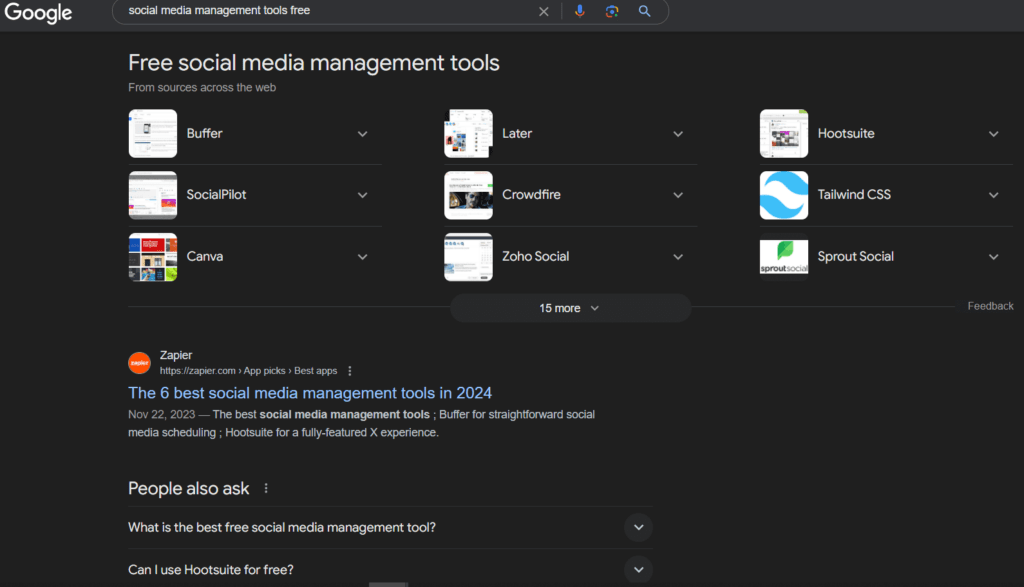
SEO for SaaS in 2025
This is not a history class, but we should keep in mind what it took to rank well on Google ten years ago and what it takes now.
Ten years ago, competition was low, and by creating pages with text, images and keywords, you could easily perform well.
Now, with the constant changes and updates, you need to reinvent new content types, implement various SEO strategies and constantly iterate to achieve similar results.
For example, now you have to battle CHERPs( chat engine result pages), where some keywords will show the chatbot’s response to the query first. For your SaaS business, that means either battling with AI to appear in these results with chatbot optimization strategies or giving up on keywords and queries where AI has a clear advantage.
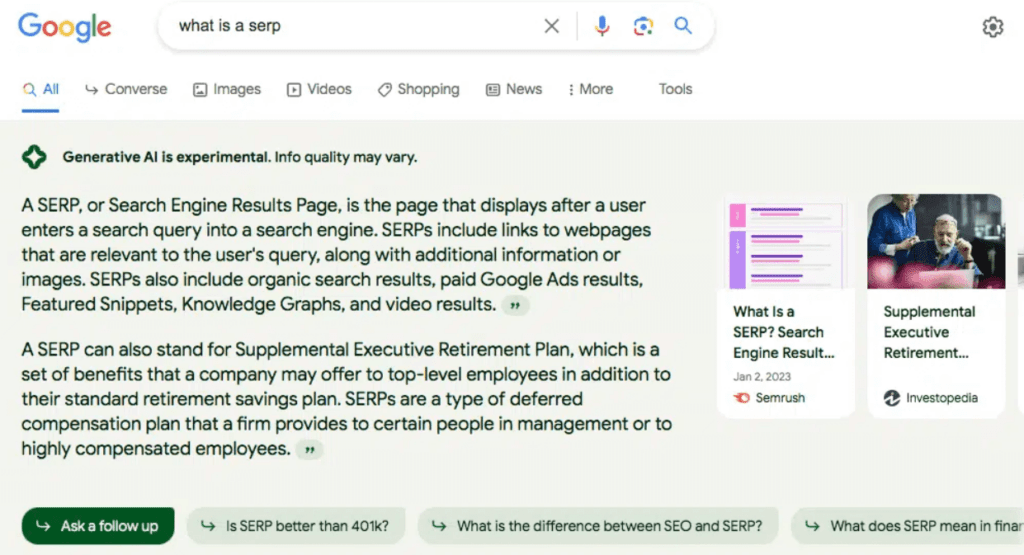
Until you’ve completely given up on SEO and “competing with windmills,” let’s see why it is worth your time, energy and money.
Why Should SaaS Companies Invest in SEO?
When done right, SEO has this amazing compound effect once you’ve started ranking for relevant keywords.
To make sure you’re optimizing for B2B SaaS SEO, it’s crucial to partner with an agency that understands the specific challenges and opportunities in this field. A B2B SaaS SEO agency can provide targeted strategies to enhance visibility, drive organic traffic, and ultimately convert leads into loyal customers. Learn more about how we at Nuoptima specialize in delivering tailored SEO solutions for B2B SaaS companies.
A well-defined content marketing strategy is a foundational element for effective digital marketing, particularly in SaaS. By incorporating competitor research, audience insights, and content audits, businesses can refine and enhance their strategy to significantly improve their SEO and drive organic growth.
Once you’ve snatched a #1 position for one keyword, you can rank in multiple SERPs for similar target keywords. After the reader opens your #1 article, they can easily click on one of your internal links and continue browsing through other articles (giving them a boost in rankings) OR click on one of your service page links and buy your product. Win-win situationTo achieve these results, it’s important to understand how to choose an SEO company that can effectively execute your strategy.
If you’re looking to get expert advice on growing your SaaS business, working with a SaaS consulting agency can help accelerate your growth and streamline your strategy.
As one thing leads to another, your leads will trust your brand more (because they will see your brand in every relevant SERP) and buy from you more (because, again, they will see you in every SERP).
The final result for you is increased conversions, trust and brand awareness.
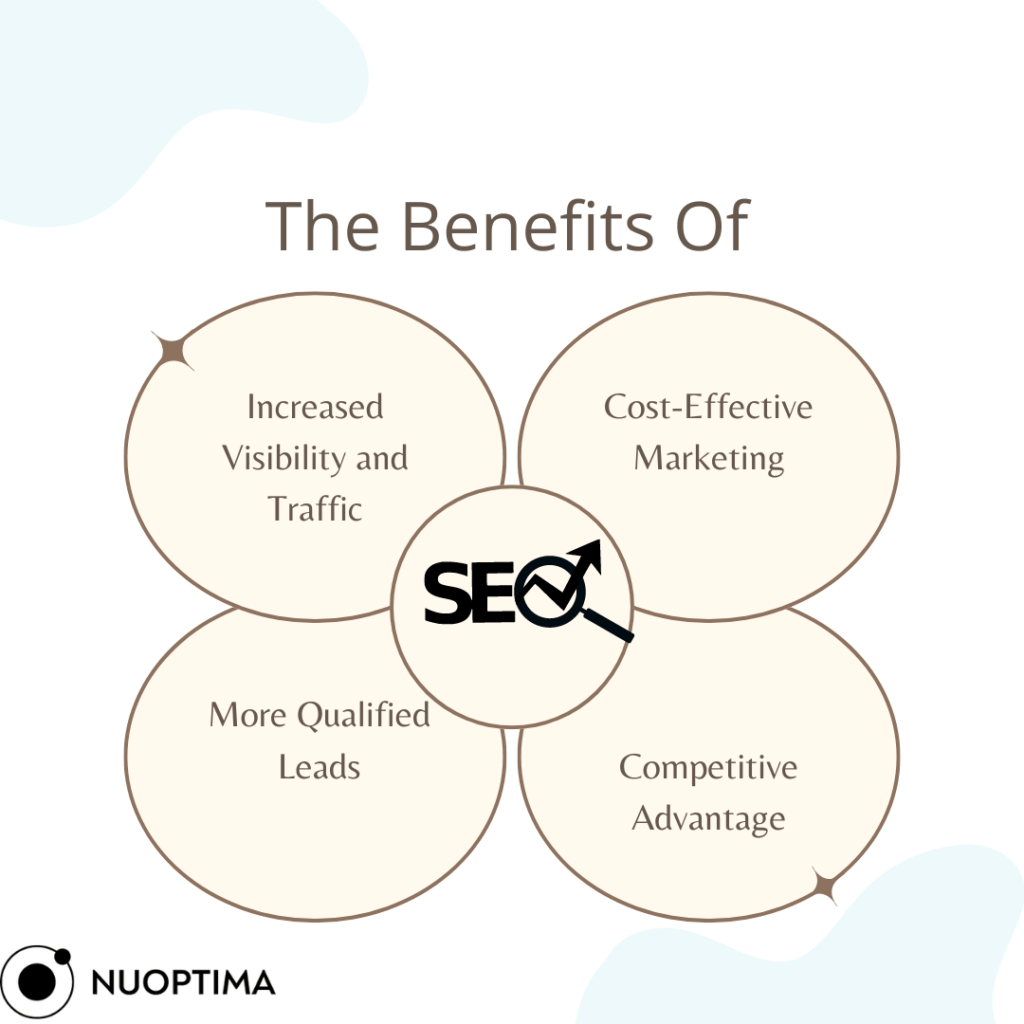
The Unique Aspects of SaaS SEO
Now, suppose you know a thing or two about SEO. In that case, you’ve probably skipped the basics SEO mini-lesson, but let’s break down what you need to know about SaaS SEO in particular, as opposed to SEO for other types of companies or individuals.
Conducting an SEO audit is a key step in identifying and resolving existing SEO issues that may hinder search engine performance.
1. Physical product vs online product
Your leads and users can’t actually see, feel or get the taste of your product in real life. Therefore, you need to invest in convincing them online. How? With:
It is also crucial to use keyword research tools to monitor changes in the rankings of targeted keywords, ensuring your business stays competitive in search engine results.
- Education: Use knowledge bases, guides, service pages and in-depth “how-to” articles to demonstrate how your SaaS product works, its various use cases and ideas on personalization. In that way, your target audience will know HOW to use your product before buying it.
- Experience: Give your leads a chance to explore on their own and see for themselves if you are a good match. With interactive demo videos or free trials, users won’t feel pressured to commit right away.
- Support: Don’t let your warm leads leave your SaaS website with doubts and questions. Provide detailed support with FAQs, chatbots or direct contact with you, so they are never left to wonder on their own.
2. Longer sales cycle
Besides the readers looking for direct alternatives to the tools they used before, a large percent of your audience won’t convert on their first interaction with your brand and product. That is why your SEO efforts need to constantly find and address their needs no matter what stage they are in.
Measuring SEO results, such as rankings, organic traffic, and conversion rates, is crucial to gain insights into the effectiveness of your SEO efforts and identify areas for improvement.
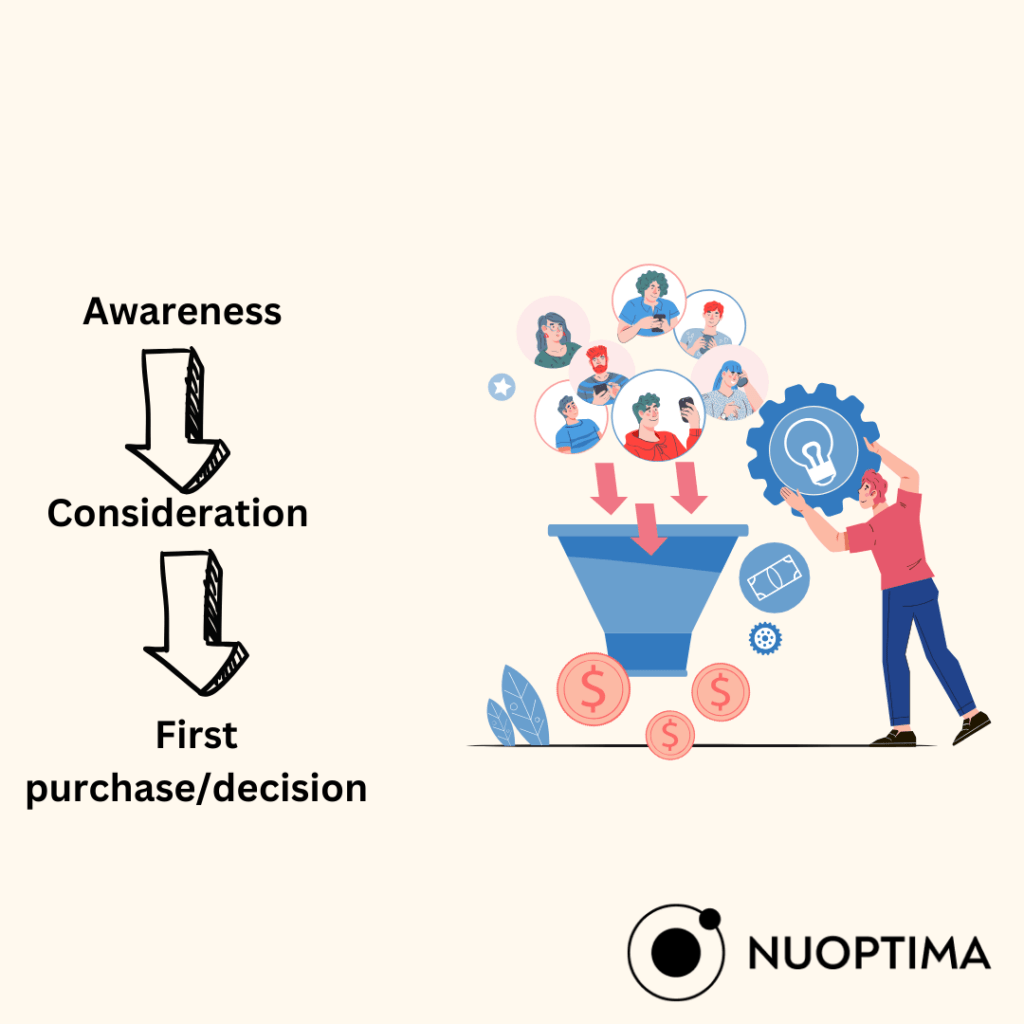
>>If you are an enterprise with even longer sales cycles, check out this enterprise SaaS SEO guide <<
3. Worldwide competition
Some companies, especially those who have physical products and stores, focus more on local SEO and beating their “next-door competitor”. However, for SaaS brands, the competitor net is much wider because you’re competing with SaaS companies all over the world.
In this highly competitive space, leveraging international SEO can help SaaS businesses extend their reach and attract a global audience, ensuring their services are visible to potential clients worldwide. Including both internal and external links within website content can enhance user experience and contribute to effective SEO.
Nobody cares where your company is located, which can be both a challenge and an opportunity. This should be in the back of every SaaS marketer’s head when they do keyword, competitor and customer research. To effectively manage both local and global competition, businesses can benefit from white label local SEO services, which allow them to dominate local search results while focusing on broader market strategies.
Partnering with an experienced SEO agency can help you navigate the complexities of global SEO competition, ensuring your SaaS brand ranks effectively on Google. With the right strategies in place, you can gain a significant edge in your niche.
4. Customer filtering
Since most SaaS brands now have free trials or plans of some sort, it is easier for customers to try the tool and leave if they are not satisfied. That is a scenario we need to avoid, and proper product marketing strategies help you get qualified leads to your website, where you can educate and convert your ideal customers only.
Content marketing campaigns play a crucial role in enhancing website visibility and achieving SEO goals. These campaigns require consistent monitoring and improvement to ensure success.
As competition intensifies, SaaS companies must adapt their SEO strategies to stand out. Similarly, cybersecurity firms face unique challenges in ranking highly on Google, where a tailored cybersecurity SEO strategy can make a significant impact in driving organic traffic and reaching the right audience.
How Does Google Search Function?
Now that we covered the front end, let’s dive into the back end a bit and figure out how Google functions overall. Once you know how Google picks and chooses, we can explore strategies that will make you Google’s favorite.
1. Finding You (Crawling)
Google uses automated bots (crawlers) to “surf” the internet, visit all web pages that exist and scan their content (text, images, tags, videos, etc). For your website to be crawled, SaaS marketers need to create a sitemap, and robot.txt file and optimize your whole website for bots to effectively do their job.
2. Analyzing You (Indexing)
After viewing and downloading your content, Google’s bots analyze it and store the information in Google’s vast database, based on the information it has. To appear in the right Search Engine Results Pages and top positions, your website needs to signal to Google what you intend to rank for, with keywords, links, HTML tags, etc.
3. Displaying You (Search Results Appearance)
Displaying your SaaS website in search results is crucial for attracting potential customers. Your search results appearance can make or break your chances of driving organic traffic to your website. A well-crafted title tag, meta description, and keyword-rich content can help your website stand out in search engine results pages (SERPs). Ensure that your title tag is descriptive, concise, and includes your target keyword. Your meta description should be compelling, informative, and entice users to click on your website. By optimizing your search results appearance, you can improve your click-through rate (CTR) and drive more organic traffic to your SaaS website.
Understanding Your Audience
Understanding your target audience is essential for creating an effective SaaS SEO strategy. Your audience’s needs, pain points, and search intent should guide your keyword research, content creation, and optimization efforts. Conduct market research, analyze customer feedback, and use tools like Google Analytics to gain insights into your audience’s behavior and preferences. By understanding your audience, you can create content that resonates with them, addresses their needs, and ultimately drives conversions.
3. Displaying You ( Search Results Appearance)
Once Google understands your intent, it will display your content in the appropriate SERP(s). With backlinks, website design, content quality, user experience, keyword use, and topic relevancy, you can ensure your webpage will be ranked highly.
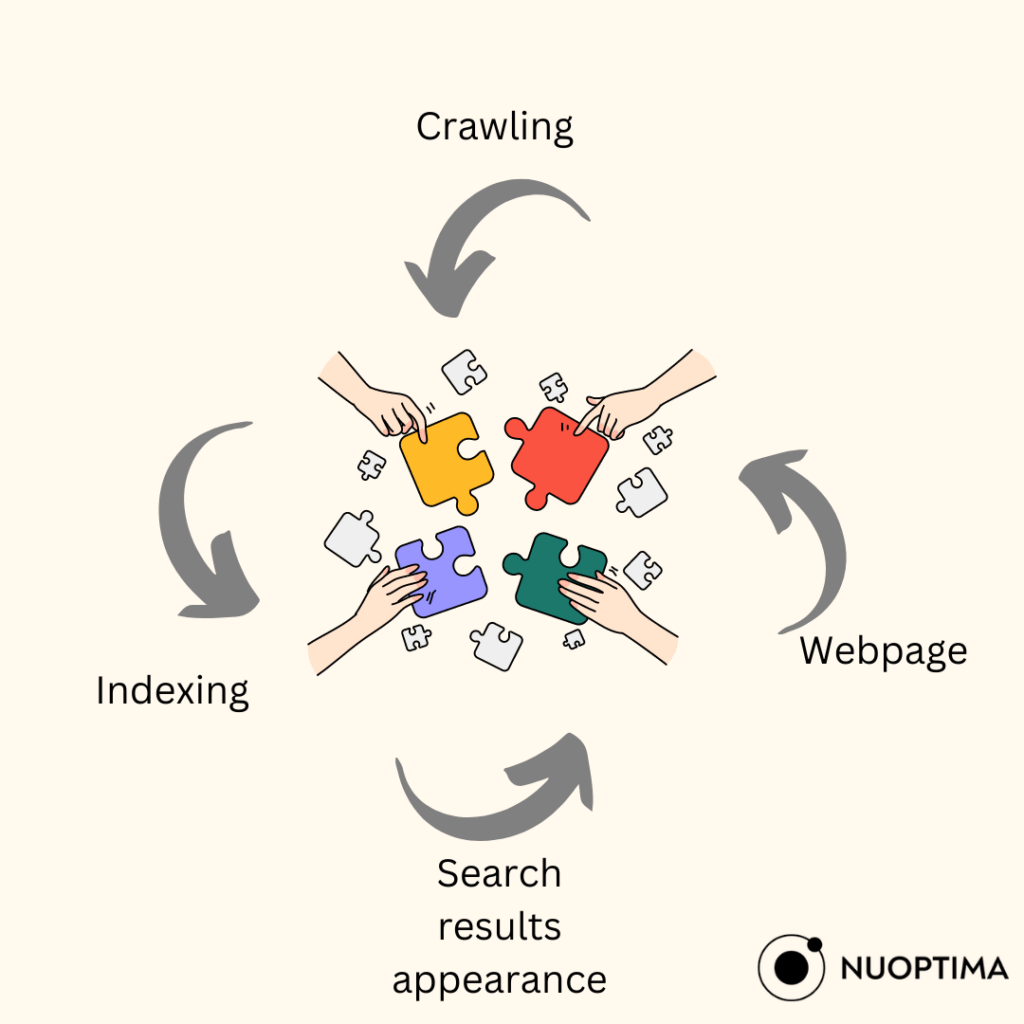
4 Strategies for Your SaaS SEO
Now that you are packed with SEO knowledge, we’ve come to the actionable part of this article. Let’s explore the top four strategies for your website optimization.
1. Expand your keyword research
Keyword research is the foundation of every solid SEO strategy. Keep in mind that a 100% SaaS-focused keyword research strategy needs to target various personas and use cases, as well as different funnel levels and content directions.
Keyword research will help you narrow down your topics, start off your SaaS link building, and optimize your on-page SEO, which is why we are covering it first.
Here is an overview of the steps we will write about below:
- Understand your audience
- Brainstorm keyword ideas and directions
- Conduct a competition analysis
- Find keyword gaps and opportunities
- Manually research and match the search intent
First of all, you will need to know who your target audience is and all the potential problems they may have that are somehow connected to your software. Don’t second guess, but do research and find out what people are searching for and saying online.
Then, customer profiles should be created with clear information about their habits, ways of communicating, problems, demographics, etc. When your team has a clear picture of the people they are “talking to,” it is easier to customize and meet their demands.
A useful tool that can help you get a clearer picture is One2Target by Semrush. It is an audience analytics tool that gives useful information when you enter your or your competitor’s domain.
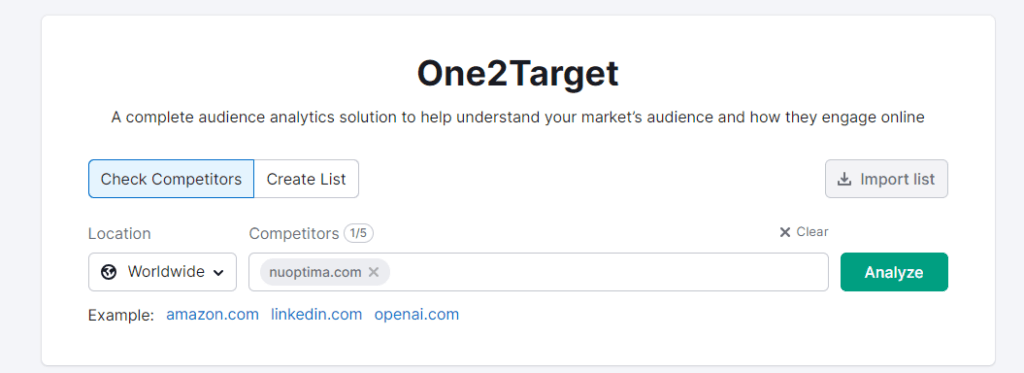
You can filter your audience by age, country, and gender while taking a deep dive into demographics, socioeconomics, and behavior.
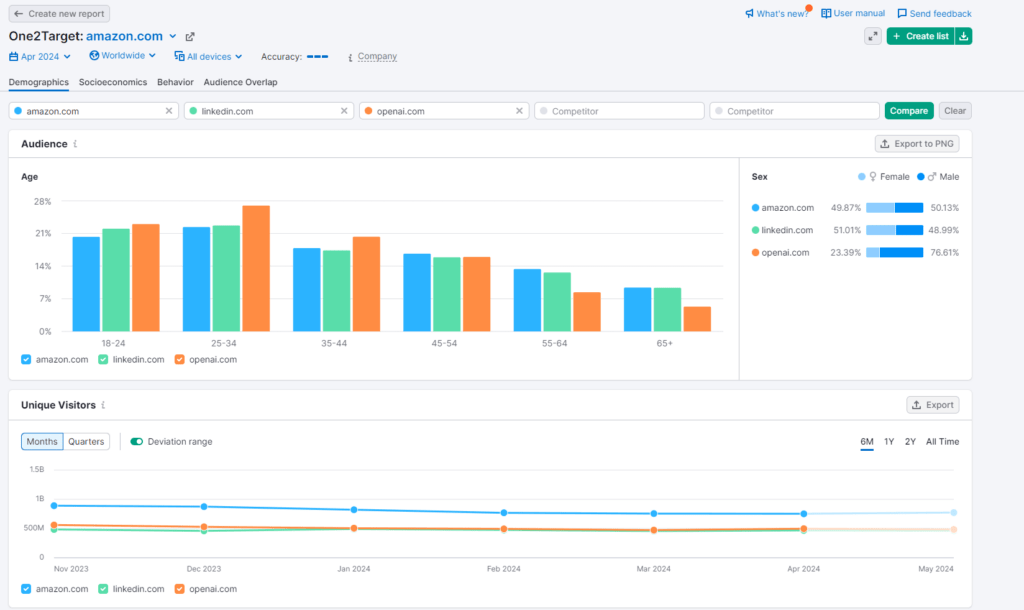
If you are an established SaaS company, take advantage of your current customers and get this information from them. You can interview them or ask them to fill in a questionnaire. Get to know them better so you can acquire similar leads faster.
Now, you are ready to start or upgrade your existing keyword research. For this, you will need SaaS SEO tools such as Ahrefs, and if you don’t know where to start, start with seed keywords (keywords that are clearly connected to your brand).
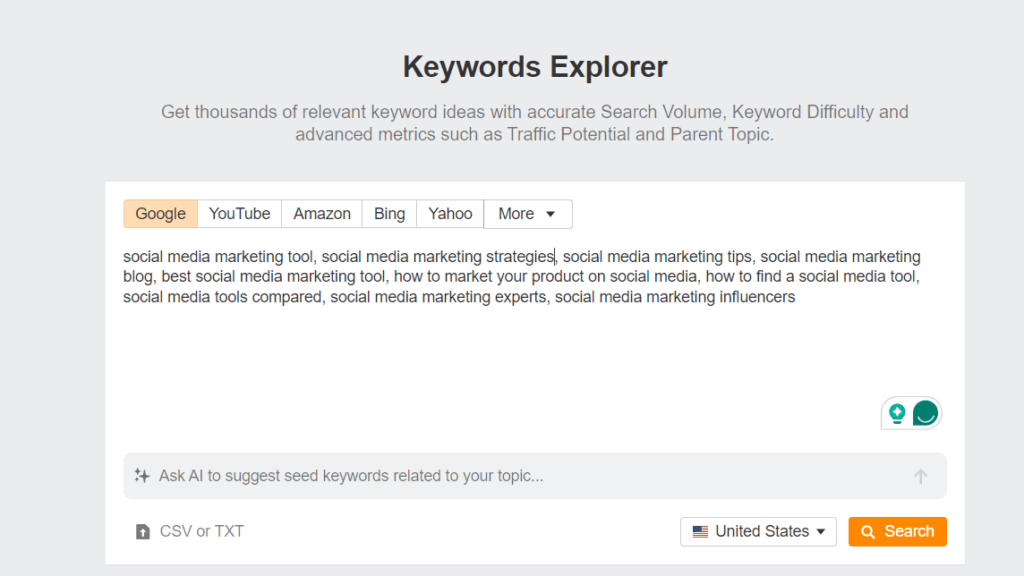
Now check the metrics for these words (usually, seed keywords are competitive keywords).
Notice the KD (keyword difficulty) and SV (search volume), and determine whether you can rank for them. Depending on your DA (domain authority), you can pick the keywords. If you have high domain authority, you can go for keywords with higher KD and higher SV.
However, it is best practice to find “low hanging fruit” keywords that have low KD and high SV because you have a chance of ranking higher and getting SaaS marketing ROI.
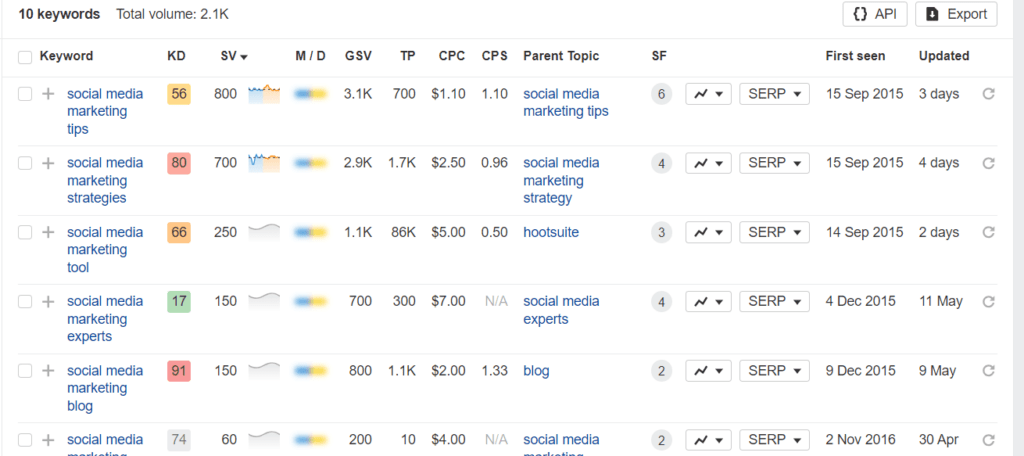
But don’t stop there; use seed keywords as your starting point and go in-depth by exploring matching, similar, and suggested terms with your keyword research tool. Try experimenting with different keyword variations and synonyms to map out all the ways people are searching for your product.
It is crucial to analyze and select high search volume keywords and related long-tail keywords. High search volume keywords often come with high keyword difficulty, making it challenging for new websites to rank due to the dominance of established high-authority sites.
To acquire the highest leads, look out for keywords like:
- Best tools for (your niche)
- (Competitor) alternative
- (Competitor)vs
- (Competitor) review
Now it is time to see what the competitors are up to. If you don’t want to spend time scrolling and analyzing their websites, just use a competitive analysis tool.
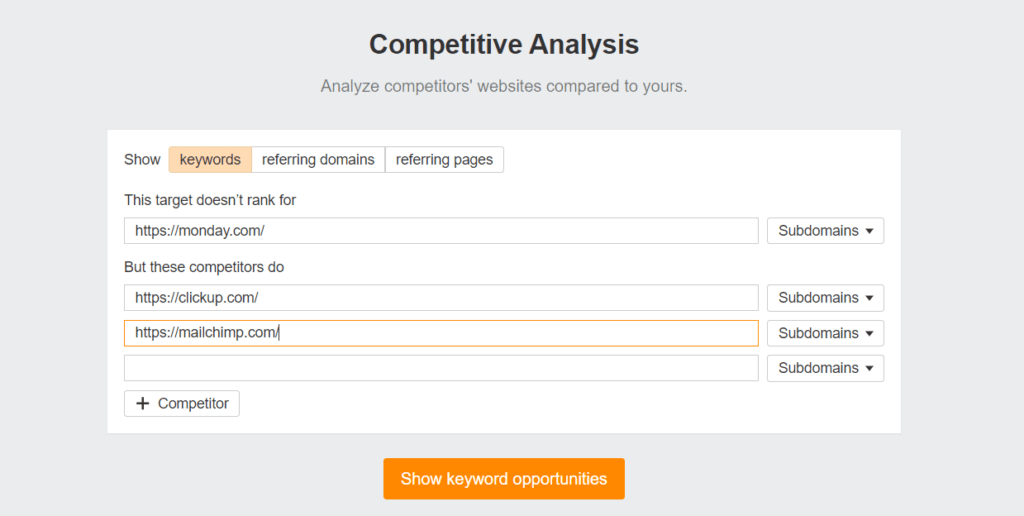
You can find common keywords and keywords you are missing out on. Make sure to note and seize these opportunities so your target audience doesn’t go to the competitor’s website instead.
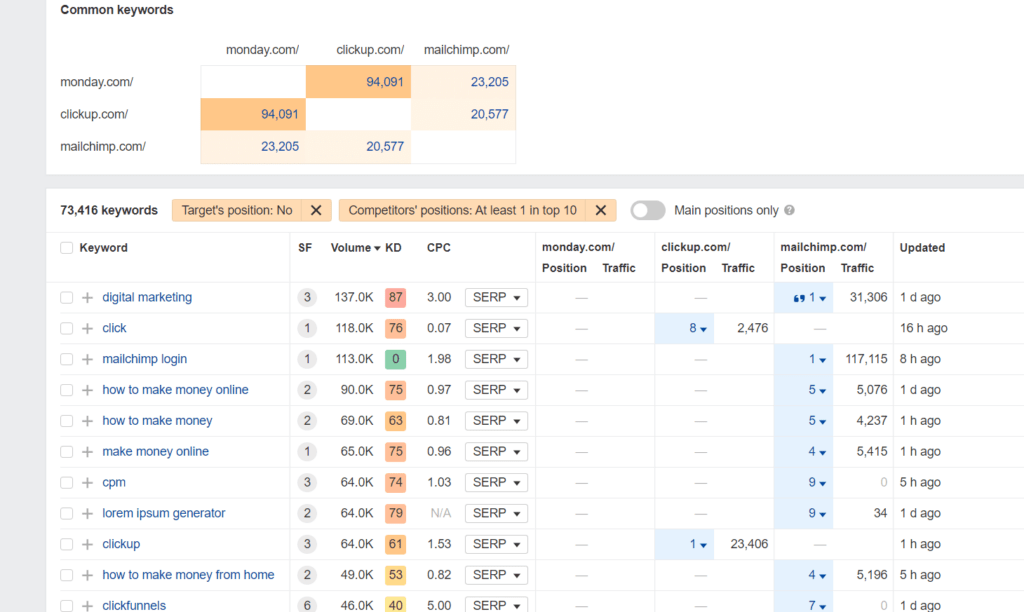
Another great tip is to build your keyword research around customer pain points. In our example “social media management tool,” pain points could be:
- How to build a social media strategy?
- How to automatize social media posts?
- How to measure and track social media results?
Make sure to use these for informational pages and guides while leaving high-value keywords for SaaS landing pages such as:
- Free social media management tool
- Best social media management tool
You can also track trend fluctuations with Google Trends to make use of trending topics and keywords and bring in organic traffic.
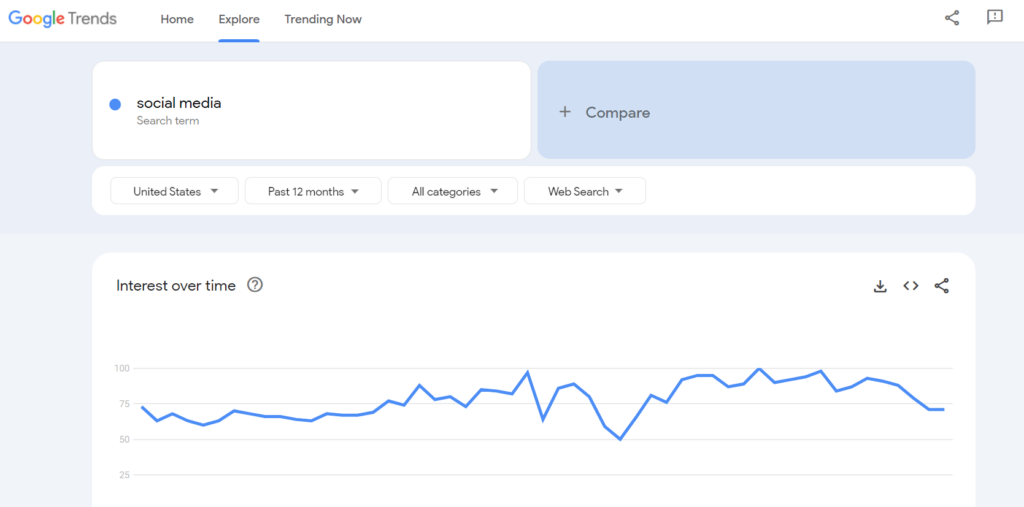
How do we know the search intent? We’ve come to the #3 step. The safest way is to manually enter the keywords into SERP and see what types of pages appear. Then, make sure you have the same type of page for that keyword.
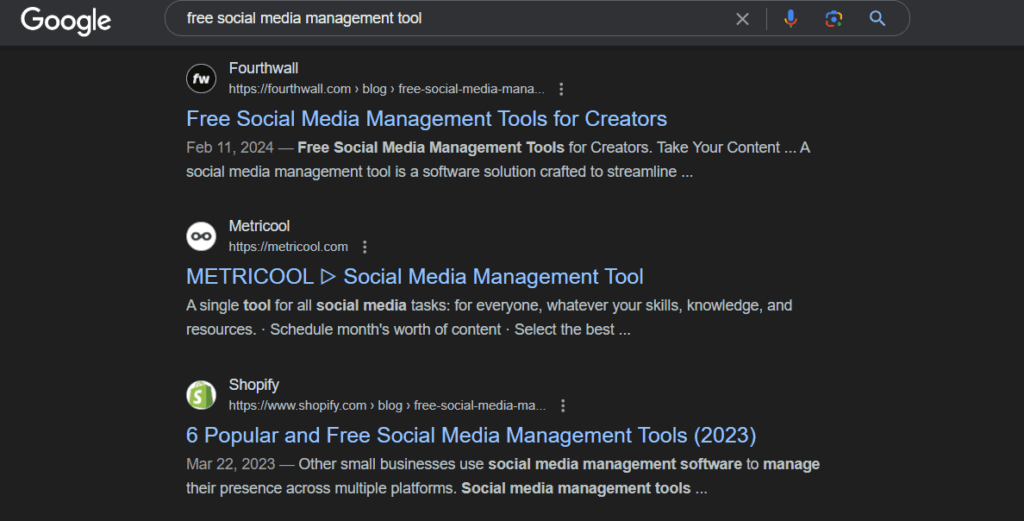
Once you are ready to start working on your webpage, check the details of the pages ranking high in that SERP. You don’t have to read them from A to Z, but check:
- Which keywords are they using and ranking for?
- Where are these keywords placed?
- How many backlinks and internal links do they have?
- Do they use videos/images/gifs?
- What is the length of their content?
- Is it a part of a pillar/cluster?
With all this in mind you can learn something from their structure and strategy and use it to create content.
In 2025, our advice is to beat good content with better content. Better content is filled with original statistics, in-depth research, personal examples, and helpful practices.
2. Fix all technical issues
Here are the most common technical issues that need to be fixed, before you make a SaaS marketing plan.
- Site speed
- Mobile-friendliness
- HTTPS
- URL structure
- Meta tags
- 404 issues
- No Sitemap.xml file
- No robots.txt file
- No re+canonical link tags for duplicate content
It is also important to link to relevant pages within your own website as part of the content creation process to enhance the article’s value and SEO performance.
You can find a list of all the technical issues on your website using Ahref’s Audit Tool.
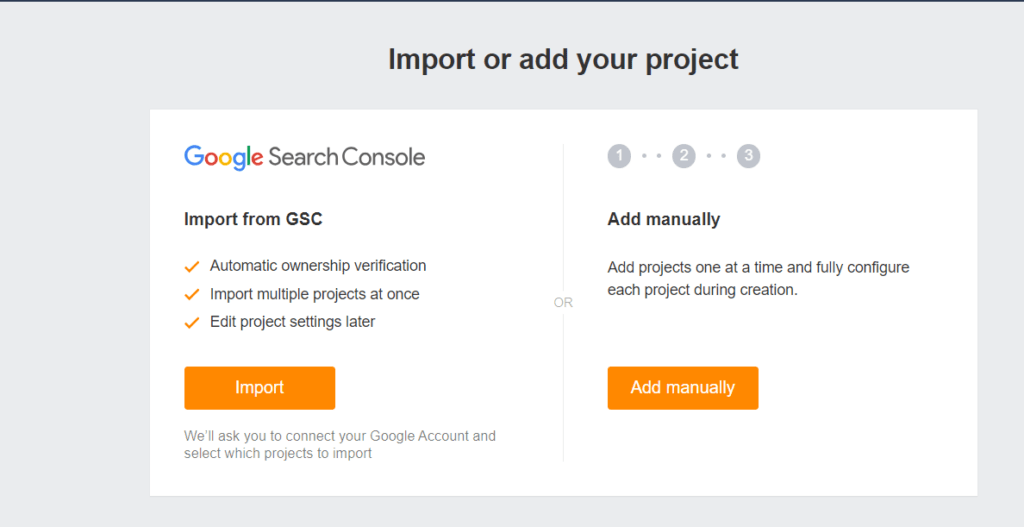
Once you have a healthy score, you can look into:
- Indexing issues – Use the “URL inspection” tool in your Google Search Console
- 301 redirects – Reclaim lost links by adding redirects
- Internal links – Connect your web pages with proper anchors and links
- Schema markup – Add various types of schema markups, such as the FAQ schema
3. Optimize and diversify your content
Content optimization is key to having success when it comes to SaaS SEO. Perform a content audit and see if your audience is interacting with your webpage.
Keyword research is a foundational element of any SEO campaign, particularly for SaaS companies aiming to enhance their organic traffic and reduce cost per acquisition.
Use a tool such as Ahrefs and your GSC/Google Analytics to see how your webpage is performing in terms of the number of keywords (and positions) it is ranking for, the number of clicks/views and conversions.
Then, you can use Surfer SEO to see which keywords, sections or images you can add to boost your SEO score.
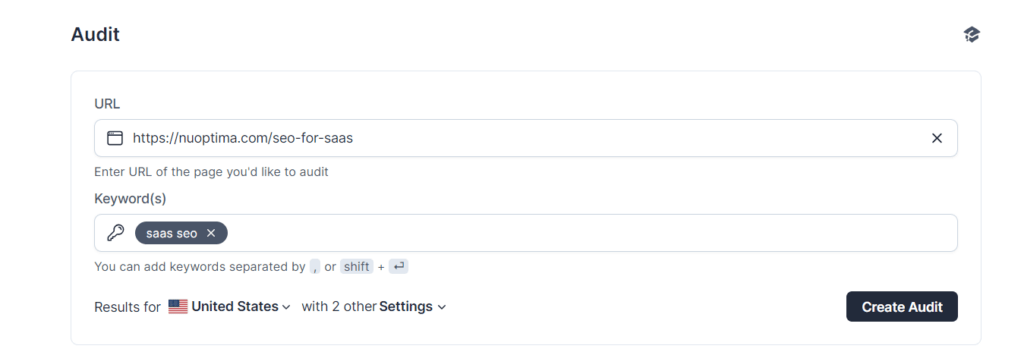
What else will truly make a difference?
- Removing broken links
- Creating more backlinks
- Adding relevant internal links
- Updating the meta tags
- Adding new sections
- Changing the POV
- Enriching content with examples
- Checking if the content still matches the search intent
- Add expert insights from interviews/podcasts
- Distribute your content
A SaaS content marketing agency can help you leverage existing content when creating new content. You can make pillars and clusters with the bundle of topics you already have. You can cover a large topic in-depth and then make separate articles on specific sub-topics that will link to the main article.
In that way, a reader can learn everything there is to know about a topic on your website. Plus it will signal to Google that you are an authority in that niche once you start ranking for similar topics and keywords.
We’ve mentioned content diversification.
Today, it is not enough to say something once. You can cover the same topic in multiple ways with webinars, podcasts, guides, and social media posts. In that way, the channel your target audience uses won’t be a deal breaker for you.
4. Look Beyond Basic Link Building
Almost half of the SEO experts surveyed in the State of Link Building report[[2]](LINK 1) consider link building the most challenging part of SEO.
There are numerous valid reasons to think so, such as the price of one quality link being over $300, competitors buying links, or the fact that it takes time for them to pay off.
One thing is for sure – with SaaS link building, we definitely want to avoid buying harmful links on link farms and risk being penalized by Google. So what can we do?
It is also crucial to measure SaaS SEO results, such as rankings, organic traffic, and conversions, to evaluate the effectiveness of your SEO strategy and identify areas for improvement.
There are three innovative ways to leverage links:
- Digital PR
- Guest posting
- Linkable assets
Around 67% of surveyed SEO experts said Digital PR is the most effective link building tactic, while guest posting and linkable assets take the 2nd and 3rd place, according to the State of Link Building report[[2]](LINK 3).
Digital PR or brand-building consists of media publications sharing your story with their audience. These stories can be product promotions, value and mission statements, as well as ideas or corporate culture talks. These not only give you access to a wide audience but build backlinks that are industry-relevant.
Forbes and Entrepreneur are the most famous business-related media publications, but it is worth exploring some minor niche websites that have a warm community.

Guest posts are articles on other websites with your SaaS founder/manager as the author of the article. You can pick and choose your “host” website and find industries and websites that overlap with your niche and that you can benefit most from.
Another benefit of guest posting is that you have full control over the topic and narrative of the content, and you can choose the anchor link, which has the most impact on SEO. This method gives you more freedom than Digital PR but requires a lot more research and preparation on your end.
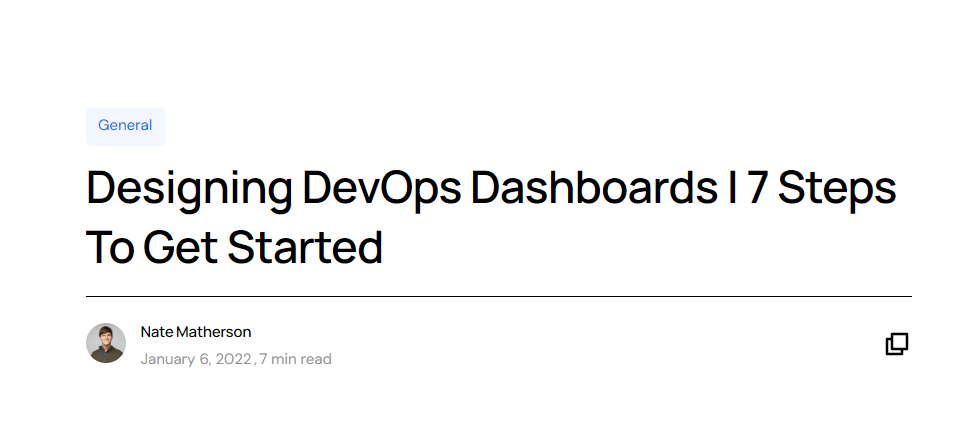
Finally, a scalable and sustainable strategy that doesn’t depend on other websites is – linkable content. By creating in-depth guides, statistics or original case studies that others would benefit from linking to, you are securing organic links in the way Google prefers most.
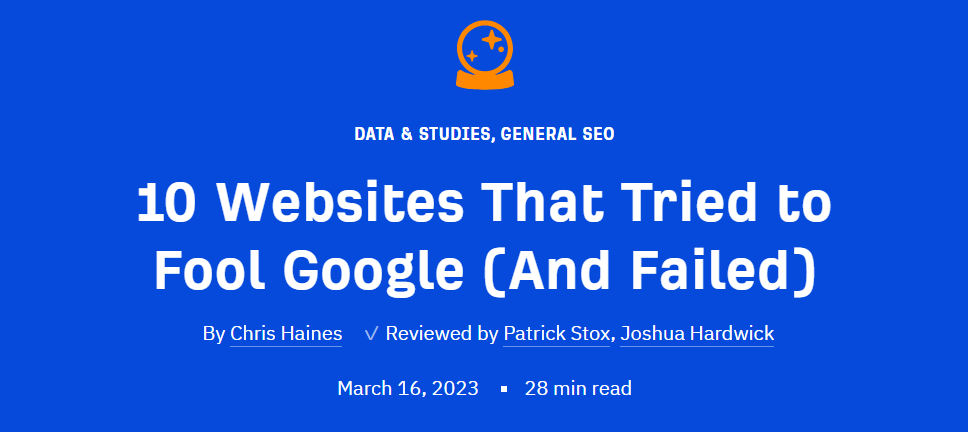
For expert advice on optimizing SaaS operations, check out the Nuoptima SaaS Podcast featuring Rob Smith from Slick.
SaaS SEO is a marathon, not a sprint, to say the least. With constant algorithm updates, rising competition, and a decrease in attention spans, marketers are led to give up on SEO too early.
Even though it is not a straightforward line, and you will have to constantly put energy and resources into it, it pays off big time. This mini guide from our B2B SaaS SEO agency, has all the necessary best practices and steps to get your SEO machine running.
By following it carefully, you will not only understand SaaS SEO better, but you will see results and improvement faster.
If you need a helping hand that will take over all your SEO efforts and bring back results, we at NUOPTIMA are here.
Book a 30-minute call with our team of experts, so we can create your SaaS-focused and specialized SEO strategy.
On-Page Optimization
On-page optimization is a critical component of any SaaS SEO strategy. It involves optimizing individual web pages to rank higher in search engines and drive more organic traffic. Ensure that your web pages have descriptive title tags, meta descriptions, and header tags that include your target keywords. Optimize your content with relevant keywords, but avoid keyword stuffing. Use internal linking to help users navigate your website and improve your website’s structure. By optimizing your web pages, you can improve your website’s visibility, drive more organic traffic, and increase conversions.
Measuring SEO Success
Measuring SEO success is crucial for evaluating the effectiveness of your SaaS SEO strategy. Use tools like Google Analytics to track your website’s traffic, engagement, and conversion metrics. Monitor your search engine rankings, keyword visibility, and backlink profile to gauge your SEO efforts’ impact. Set clear goals and key performance indicators (KPIs) to measure your SEO success, such as increasing organic traffic by 20% or improving your website’s search engine ranking by 10 positions. By measuring SEO success, you can identify areas for improvement, adjust your strategy, and optimize your SEO efforts for better results.
SEO Tools and Resources
Utilizing the right SEO tools and resources can help you create and execute an effective SaaS SEO strategy. Google Search Console, Google Analytics, and Ahrefs are essential tools for monitoring your website’s performance, tracking your search engine rankings, and analyzing your backlink profile. SEMrush, Moz, and Ubersuggest can help you with keyword research, technical SEO audits, and content optimization. By leveraging these SEO tools and resources, you can streamline your SEO efforts, save time, and drive better results for your SaaS website. Remember to stay up-to-date with the latest SEO trends, best practices, and algorithm updates to ensure your SaaS SEO strategy remains effective and competitive.
FAQ
SaaS SEO are activities done with the goal of increasing the rankings and authority of your website on Google SERPs. Through content marketing, link building, and technical fixes, SaaS companies can build their online presence so their customers can find and convert easily.
The ultimate benefits of SEO for SaaS companies are increased sign-ups, brand awareness, authority and competitive advantage. With worldwide competitors and social proof as the number one decision maker, SaaS brands can’t risk not having a good online presence.
The foundation of every SaaS SEO strategy is market and competitor research to find the most relevant keywords your audience is googling. Building a strategy around those keywords is the next step.
Common challenges in SEO include a small budget, high competition, and no quick results. However, all this can be tackled with a good digital marketing strategy that will provide scalable steps and results.
SEO consulting guides SaaS companies in the right direction, minimizes risks and increases the chance of success. With proper guidance, SaaS companies won’t spray and pray, but confidently take the necessary steps to boost their online visibility and outrank their competitors.



